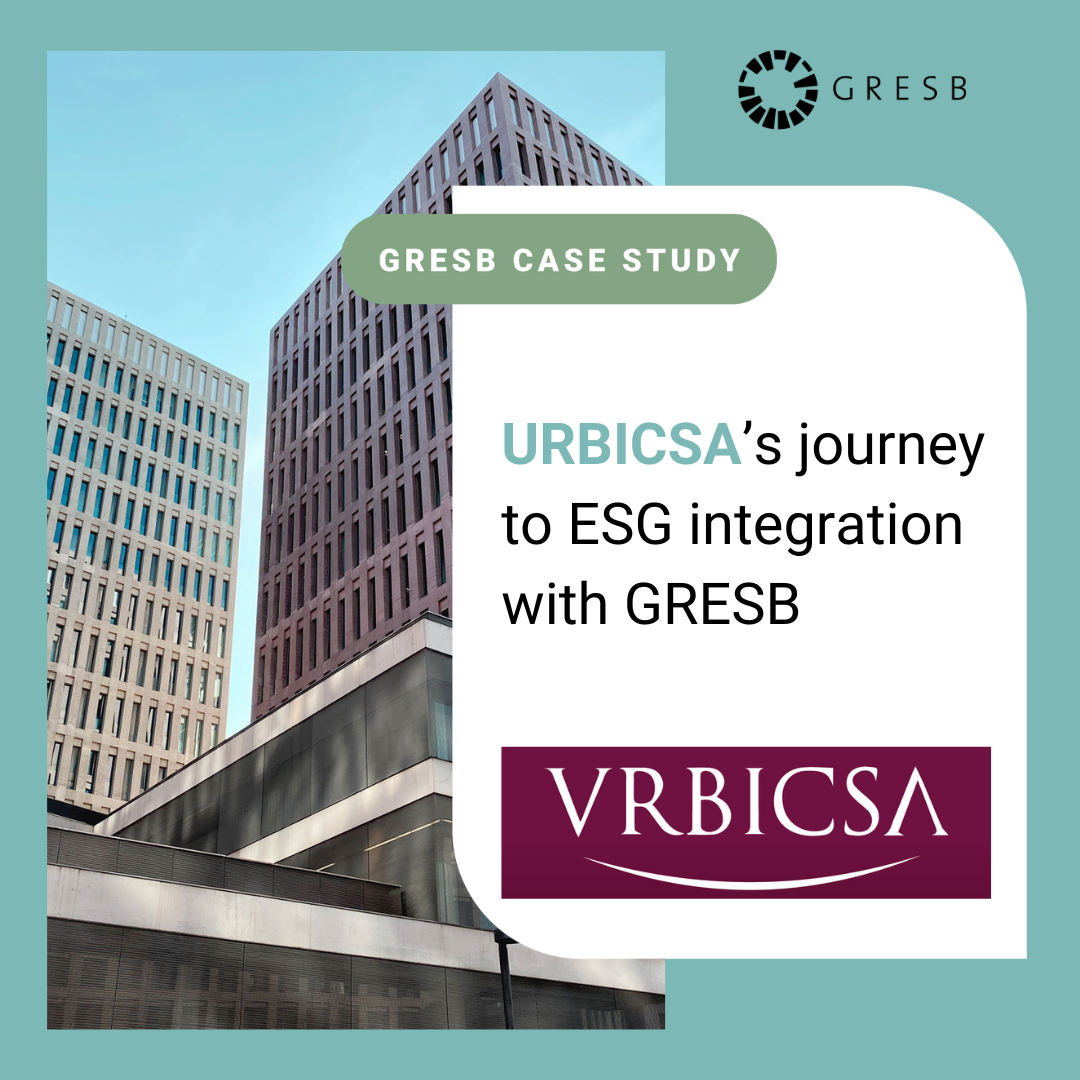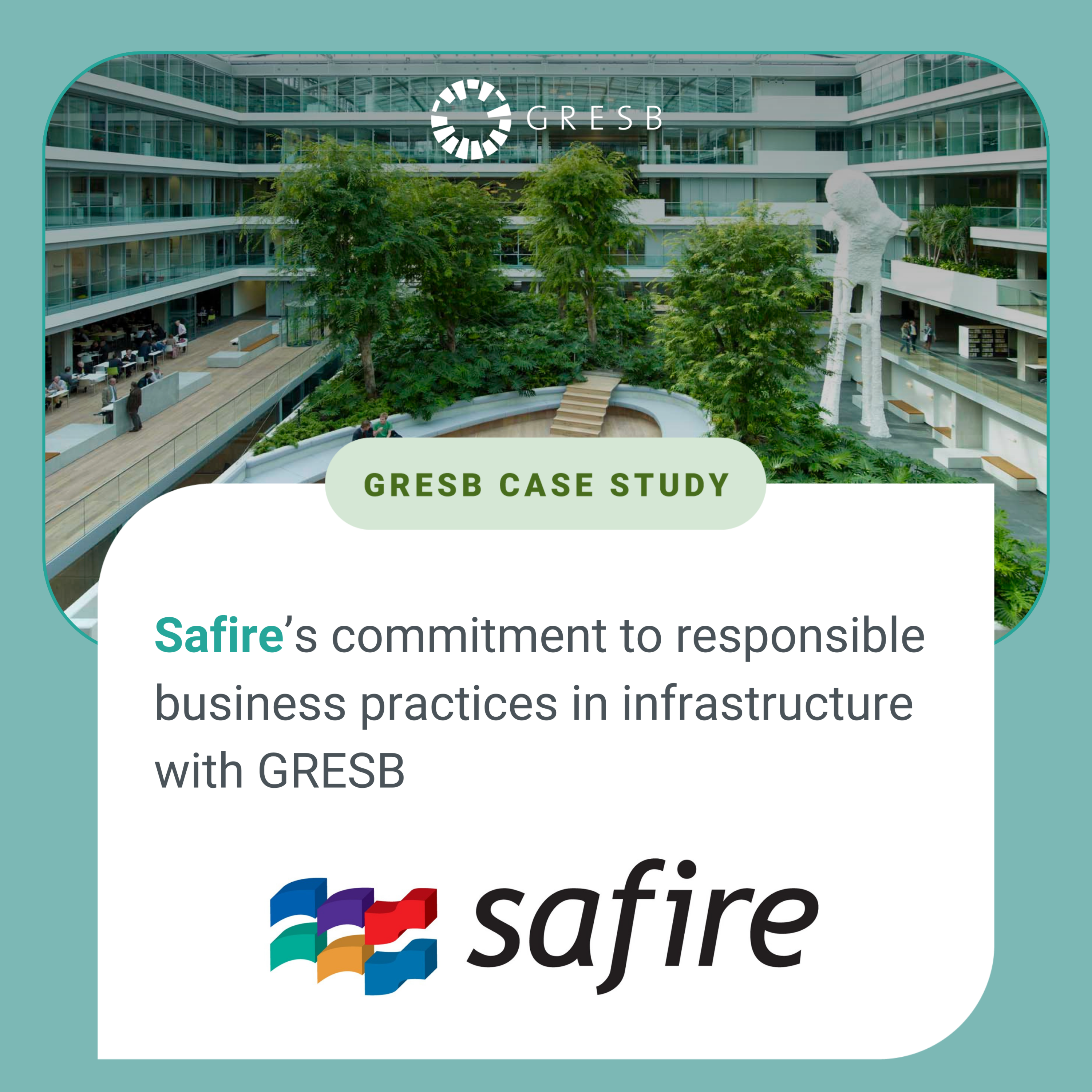
About the Aberdeen Investment infrastructure capital team
With more than 20 years of experience, Aberdeen Investment’s infrastructure capital team invests directly in public-private partnerships and concession style infrastructure assets globally, focusing on essential public services, social mobility, and decarbonization with the objective of producing long-term sustainable returns.
GRESB Assessments, tools, or products used: GRESB Infrastructure Fund Assessment, GRESB Infrastructure Asset Assessment, GRESB SFDR Reporting Solution
AuM: More than USD 4 billion across the infrastructure capital platform (as of June 23)
Region: UK, Europe, USA, Latin America, and Australia
In the dynamic landscape of infrastructure investment, global asset manager Aberdeen Investment stands out for its unwavering commitment to sustainability. A long-time GRESB participant, Aberdeen’s commitment is not merely a management duty, but a strategic integration of ESG principles into the core of its infrastructure investment operations. At the heart of Aberdeen’s sustainability initiative lies a comprehensive approach encompassing data collection, monitoring, reporting, and active engagement with diverse stakeholders, ranging from public sector counterparties to subcontractors, co-investors, and project teams.
As a responsible asset manager, Aberdeen Investments leverages its influence to drive positive change, particularly in supporting the global transition to a net-zero economy. Central to this endeavor is the collaboration with its portfolio of infrastructure assets, where Aberdeen actively fosters the implementation of robust ESG practices.
Responsible asset management
Aberdeen Investment encourages its assets to make ESG considerations a standard agenda item in board meetings and actively engage with various stakeholders to enhance overall ESG performance. Aberdeen Investment’s approach to assessing the sustainability performance of its assets includes urging investee companies to establish and fortify policies and processes where they identify gaps. Furthermore, Aberdeen Investment advocates for setting performance improvement targets and sustainable KPIs within its asset portfolio. GRESB is a valuable tool in Aberdeen Investment’s arsenal, facilitating portfolio monitoring, benchmarking, and engagement.
We want to help provide future generations with resilient sustainable infrastructure that will contribute to the protection of the environment and improved social outcomes for local communities. A robust approach to reporting helps stakeholders focus on sustainability outcomes and GRESB is one of the tools we use to help benchmark our existing assets — Karen Hill, Head of Sustainable Investing, infrastructure capital
However, the path towards comprehensive ESG integration in infrastructure investment has its challenges. In particular, the unique characteristics of infrastructure assets, the multitude of stakeholders involved, and the often-rigid contractual structures governing concession infrastructure assets can pose significant hurdles to effective data collection and reporting.
The two infrastructure asset case studies below explore these challenges and demonstrate how GRESB has served as a valuable tool in the assets’ strategies, addressing some of the intricacies of ESG reporting within the infrastructure sector.

URBICSA’s journey to ESG integration with GRESB
About Urbs Iudex et Causidicus S.A
Urbs Iudex et Causidicus S.A (URBICSA) is the concessionary for the City of Justice of Barcelona. The contract was signed in September 2003 with the Government of Catalonia. The project comprises eight buildings dedicated to justice use, private offices, commercials, and a car park. The total surface area is 232,369 square meters. URBICSA oversees the infrastructure’s construction, finance, operation, and maintenance until 2038.

Embracing responsible business practices with GRESB
About Safire B.V.
The Ministry of Finance building in the Hague is part of a public-private partnership project that comprises the renovation and operation of the building. The building is spread over nine floors, three of which are below ground, including areas for parking and sports facilities, and six of which are above ground, including meeting rooms, a library, offices, and a restaurant.
Safire B.V. is a special purpose company, managed by Aberdeen infrastructure capital investment vehicles, set up to manage the project’s design, construction, facilities, and financing in accordance with the project agreement with the contracting authority.